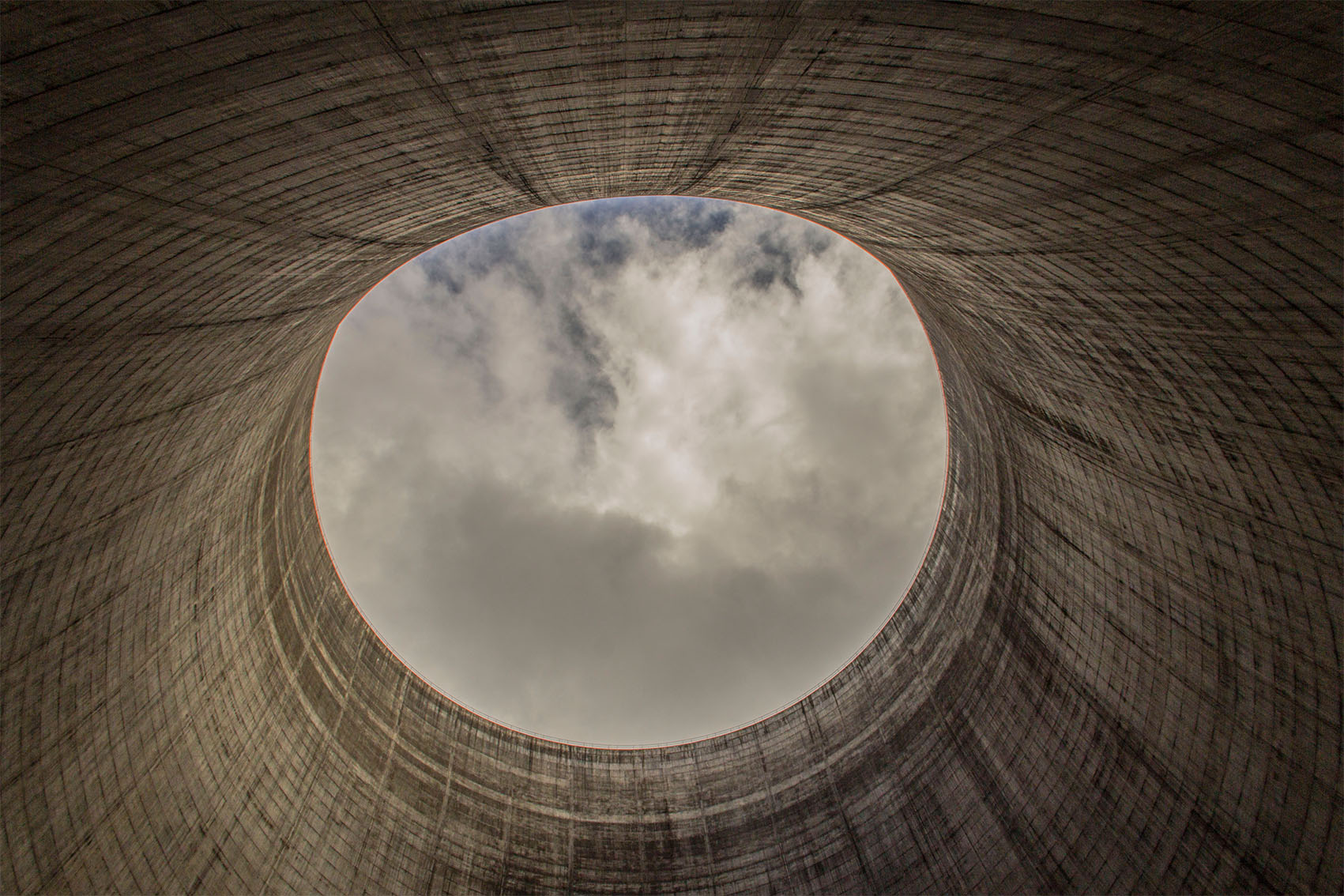It is known to us that nuclear weapons are necessary for guaranteeing national security and various countries have tried their best to enforce their nuclear weapons over years. A country can directly wipe off another country in a blink of an eye and endanger the natural environment and potentially put at harm the generations to come through the ruinous effects of the nuclear weapons, during which the perils of the nuclear weapons can be readily detected. According to the International Committee of the Red Cross, nuclear weapons are unique in their destructive power, in the unspeakable human suffering they cause, in the impossibility of controlling their effects in space and time, and in the threat they pose to the environment, to future generations and indeed to the survival of humanity (ICAN. 1991). Obviously, nuclear weapons are the gravest threat to our modern world because of the potential risks for the environment, the potential health risks for people and the risk to the survival of humanity.
First and foremost, the nuclear weapons will pose the risks for the environment due to its pouring of the radioactive rains and its being toxic. The nuclear weapons are toxic to people around the area from which their strength are tested because they emit toxics and radiation for instance in the wake of testing of the nuclear weapon at Nevada site in the United States St George, a small town at Southern Utah located a few distances from Nevada testing site. The town experienced the effect of the nuclear weapons when a nuclear weapon by the name Dirty Harry was detonated, and an anticipated wind changed the pattern of the fallout, which is the cloud of form that emerges when the detonation of nuclear weapon takes place. The radiation from the weapon was immediately felt by the people caused by the exposure to gamma radiation additionally the fallout entered the ground and found their way to the food which in turn affected the people indirectly (Millson. 2011). So a fair knowledge can be obtained that the nuclear weapon will undoubtedly cause great harm to the environment.
Moreover, the nuclear weapons will pose great threat to people’s health, implying that the use of nuclear weapons should be reconsidered for the sake of the health of the wide public. The nuclear weapon programs practiced by the United States pose as hazards to the citizens of the country in that the cost of their productions in the country is at the expense of the cost of the health of people. To put it more specifically, those programs have left people exposed to the perimeters of their productions in an awkward state because environmental safety measures are not observed. The production facilities have left tons of mess lying in the production areas thus exposing the people living close to those facilities exposed to the weapons toxics and radioactive pollutions. Additionally, people living within the perimeters of the production facilities as well as those involved in the development and handling of those nuclear weapons will all be affected, like workers at the Atomic Energy Commission (Department of Energy) weapons facilities, the military personnel who took part in the testing exercise of the nuclear weapons at the Pacific and Nevada site to test their strength in terms of engagement of the enemies in the atomic battlefield. From this, the great harm of the nuclear weapons toward the wide public’s health can be readily detected.
The total loss of human lives caused by the nuclear weapons is one part of the potential risks that the nuclear weapons will have on the health of the public. The nuclear weapons have only been used twice in the warfare, which was used by the United States to bomb the cities of Japan and Hiroshima and Nagasaki during the Second World War. The Uranium atomic bomb dropped in the city of Hiroshima had an explosive capacity equivalent to 15000 tons of TNT, which burnt down close to 70% of the city’s building and leaving many people dead by the end of 1945 (Abramson. 2017). But that was not enough, a considerably superior plutonium bomb was again dropped three days later in the city of Nagasaki leveled at 6.7km squared of the city killing more thousands of people. In this sense, it is not hard to find that a large number of people have died due to the nuclear weapons.
In addition to the loss of lives, other diseases erupted due to the side effects of the atomic bombs such as cancer and chronic diseases which affected the survivors, which is another aspect of nuclear weapons’ potential risks to the health of the public. The bomb affected the ground temperature reaching up to 4000 degrees Celsius and further leading to the pouring of radioactive rains (Abramson. 2017). Based on this, the great harm of using the nuclear weapons to the health of the wide public due to the incidence of a series of diseases can well account for the great damage of the nuclear weapons to the pubic.
Also, the nuclear weapons will pose the risks for the humanity of people. The usage of nuclear weapons in the cities of Japan Hiroshima and Nagasaki suggests the effects of nuclear weapon to humanity and the long term effect that the nuclear weapon could bring to people if the weapons are developed and used for instance the degree of burning to the people and everything in the area from which they are dropped (Posen. 2001). Shigeko Sasamori, a survivor of the atomic bomb who lived to tell the tale of the effect of the atomic bomb to her (“Shigeko SASAMORI / Hibakusha Interview”. 2012) and she experienced the atomic bomb which was dropped in the wake of summer in the year 1945 in Hiroshima when she was only 13 years. From her tale, the impact of the nuclear weapons can be easily seen and thus the urge and need for disarmament is well delivered to the audience. Thus humanity and nuclear weapons cannot co-exist because the nuclear weapons always arouse dangers and threats thus putting the national security of countries at the edge. Just as Banki Moon states that “We must eliminate all nuclear weapons to eliminate the grave risk they pose to our world. This will require persistent efforts by all countries and peoples. A nuclear war would affect everyone, and all have a stake in preventing this nightmare” (Millson. 2011), which can clearly show the great impacts of the nuclear weapons to the wide public.
The same as Posen, Karam also illustrates that the nuclear weapons will exert detrimental effects on humanity to a large extent (Karam. 2001). In the words of President John F. Kennedy that “While it may be theoretically possible to demonstrate the risks inherent in any treaty… the far greater risk to our security are the risks of unrestricted testing, the risks of a nuclear arms race, the risks of new nuclear powers. We will not prematurely or unnecessarily risk the costs of worldwide nuclear war in which even the fruits of victory would be ashes in our mouth” (Karam. 2001), the proponents advocating for the disarmament of the nuclear weapons argue that the weapons posse can actually be seen as danger to humanity. Or maybe it can be put in another way that the destruction of the weapons are not only felt when they are used but are also felt in the areas from which where they are built from because these weapons are not small gadgets that can be confined in small spaces. The unrestricted harm of the nuclear weapons toward human beings is really too horrible to be predicted and the behavior to use the nuclear weapons without taking any regard of the vast majority of human beings is really indifferent and challenges humanity.
All the above seems to talk about the potential risks of nuclear weaponry, what cannot be neglected is that there are still another group of people that insist the necessity of nuclear weapons for protecting national security. The more detailed condition is that critics who disagree with the idea of disarmament claim that nuclear weapons guarantee the security of the country that is in possession of the nuclear weapons. They further claim that when a country has nuclear weapons, no country would dare start a war with it at any given time, thus the weapons promotes national security and warrants the security of its citizens. Additionally, the presence of nuclear weapons limits the confrontations that would arise between countries and more especially between the countries that possess the weapons because they have the full knowledge of the impact of those weapons if they are to be used in any given situation (Smith. 2016). Margaret Thatcher states that “A world without nuclear weapons would be less stable and more dangerous for all of us” (Smith. 2016), which shows that nuclear weapons should exist for the world peace. If the nuclear weapons are not available, then the military is only left with conventional weapons so that the world will be no better than a dangerous platform because an open attack system would have been created in that countries feel like as if they are equal and even the superpower countries will be of no exception to attacks from any country. The world functions well when there is an imbalance in that there is a country which is more powerful than another thus; as a result power regarding war is controlled. As a result, those critics claim the necessity for transiting from nuclear weapon to a world free of nuclear weapons.
It cannot be denied that the nuclear weapons can play a role in ensuring world peace and national security, but it doesn’t equal to that the nuclear weapons can be used at will by those countries. Countries have developed nuclear weapons for various reasons but not just the stereotype war reasons that immediately click when a country is said to be developing nuclear weapons. The paramount reason for the development of the nuclear weapons for either the superpower countries developing the weapons or the less powerful countries such Israel, India and Pakistan is usually a perceived threat. Not unless the perceived threats that have made these countries to develop the nuclear weapons are eliminated, the idea of disarmament will be just but a thought or more or less a vision because no country would agree to disarm its most powerful tool of war when it perceives the threat of war and thus it would be challenging for them to consent to a total free nuclear weapon. For instance, Pakistan will never consent to disarmament until the point when it feels secure versus India. A comparable contention could be about Israel. Robert McNamara has ever stated that “It would be our policy to use nuclear weapons wherever we felt it necessary to protect our forces and achieve our objectives” (Smith. 2016), which indicates that nuclear weapons should only be used when it is necessary and urgent.
In addition, Dean Ornish has as well proposed that “When U.S claims that it has the powers to invade any country unilaterally and additionally defines a country like North Korea or Iran as evil, then the automatic response of the country would be to develop nuclear weapons as the only source deterrent to invasion” (Millson. 2011), implying that nuclear weapons should only be used when there is the necessity for the country to confront invasion. Thus in the wake of North Korea threatening to attack a territory belonging to the U.S in Guam, the series of threats was as a result of the United States warning towards the country that it would be met with fire, and fury like the world had never seen if it continued to with its aggressive behavior thus creating tensions between the two countries, Mr. Trump responded to the threats by North Korea that on his orders as a president he renovated and modernized the United States nuclear weapons (Abramson. 2017). Thus based on the perceived threats, it will be very difficult for countries to embrace disarmament. In this sense, it is apparent that the nuclear weapons can really play a part in ensuring world peace and national security while it can only be used when it calls for the necessity to protect itself from invasion or other kinds of threats in the globe.
Nuclear weapons cannot be thought to be developed in order to maintain world order or peace any more and there is no evidence that the weapons can prevent war from erupting between nations. The case is very evident from the Cold war where nations developed nuclear weapons thinking that they would maintain peace but the very thought became opposite when the weapons lead to the eruption of war and thus jeopardized the national securities of many countries. Additionally, it led to devastating destruction that the world did not anticipate and left many people dead in Japan, disrupting the system of the nation and also dwarfed the country’s political and economic stability. Based on this, the damage of nuclear weapons can again be detected and the necessity of disarmament can be more deeply felt at this moment.
To sum up, a reasonable conclusion can be drawn that countries should embrace disarmament because nuclear weapons are the gravest threat to our modern world because of the potential risks for the environment, the potential health risks for people and the risk to the survival of humanity. States may deem that they are developing nuclear weapons to maintain security, but they are only developing weapons of mass destruction in real sense. Therefore nations should embrace and be part of the several treaties that have been drafted with the aim of preventing nuclear proliferation and testing. Also, nations should take notes from the scourge effects experienced and witnessed from the nuclear weapons used in the Japan and edge from their developments so as to secure the future of the generations to come. In the meantime, nations should learn that humanity and nuclear weapons can never exist and if the two are put on the same platform, one side will surely suffer and the other side that will suffer in this case is the humanity and thus there will be world disorder.








Leave A Comment